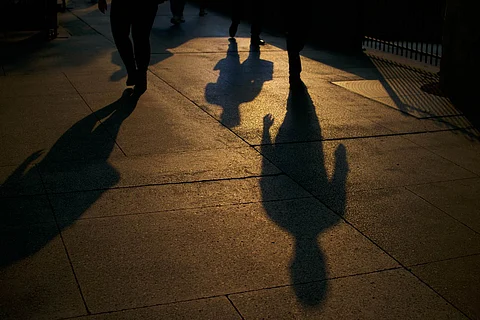

It was July 17, 1985. Madigapalle, a Dalit colony in Karamchedu in Andhra Pradesh’s Prakasam district was attacked by a large group of Kammas (a dominant caste) who were armed with deadly weapons, killing six Madiga men and raping at least three women. A month later, the accused killed a woman who was witness to the massacre.
The reason for the violence was a brawl between a Madiga woman and a Kamma man over access to a drinking water tank. The brutal killings and the rapes shook the entire state and highlighted the caste discrimination that was prevalant in the region. Many observers and activists believe that the incident changed the social and political dimensions of caste in the state.
The incident had sparked outrage and triggered a widespread movement by Dalits, for Dalits. Kathi Padma Rao, a noted Dalit activist and Bojja Tarakam, an advocate and human rights activist, launched the movement by establishing the 'Dalita Mahasabha.’
Thirty five years later, incidents of violence against Dalits are still common with varying degrees of punitiveness in Andhra Pradesh and for that matter, in India.
As per data released by the National Crime Records Bureau (NCRB) in 2017, Andhra Pradesh, where Scheduled Castes constitute 16.41% of the population, stands in fifth position when it comes to crimes against them. It is the worst-ranked among the five southern states.
TNM spoke to several activists who participated in the movement and asked them about what it was like, and what has changed since then.
Tadi Prakash, a senior journalist who then worked with 'Udayam' daily, opined that a lot has changed when it comes to the lives of Dalits in the state.
“There are visible changes in the lives of Dalits to some extent in terms of their presence in different streams, ranging from holding political positions and bureaucracy. But the situation in villages has not yet changed. It is not a matter of despair as three decades is very little time to change centuries of oppression,” he said.
While pointing that there is a change in the pattern of violence, he said, “given their population, they could not be ignored by any political party. However, they are considered purely as vote banks and there is no respect for them.”
A memorial for victims of the massacre at Karamchedu. Image: Mahesh Kongara
AM Khan Usha S Dany, a senior activist who was a member of the People’s War Group and participated in the movement at Karamchedu, said that the Dalit movement in the state has made some progress, though it not as much as expected.
He added, “I'm not happy with where it is now, but it (Karamchedu movement) brought a sea of changes in the lives of Dalits. It is because of that movement that the SC/ST (Prevention of Atrocities) Act came into being in 1989.”
Dany argued that the Karamchedu movement created an ‘intellectual enlightenment’ among Communists. “Communists who were in denial of caste-based violence had started agreeing to the existence of it,” he said.
While stating that the increased presence of Dalits in bureaucracy and legislative positions has created scope to access the power corridor, even if symbolic, he said, “Change will come through political means.”
Dany said that violence against Dalits was always followed by their assertion in social and economic realms.
Dalita Mahasabha founder and author, Katti Padma Rao, opined that the Karamchedu incident “ignited the spirit of self-respect and fighting” among Dalits, while stating that Dalit labourers have been liberated from the clutches of dominant caste landlords.
He said, “Until then, labourers were confined to the cattle or farm houses of Kammas or Reddys or Rajus. Later, at least they have become independent. Education has put them in a better place and political representation has increased.”
Katti stated that the Dalit movement that began with the Karamchedu incident was a success in many terms. “The movement will continue till Dalits get political power and land. We have enough self -respect and spirit to carry the struggle forward,” stated Katti.
As far as the criminal cases registered in connection to the event are concerned, a lower court in Guntur in 1994 sentenced 46 people to three years in prison and fined four accused who were aged over 65 an amount of Rs 10,000. The case was then appealed in the High Court, which struck down the lower court verdict in 1998, following which the victims appealed in the Supreme Court.
It was only in 2008 that the Supreme Court gave its verdict that the prime accused would serve a life sentence, while 29 others would serve three years in prison. By then, many of the accused had already died.